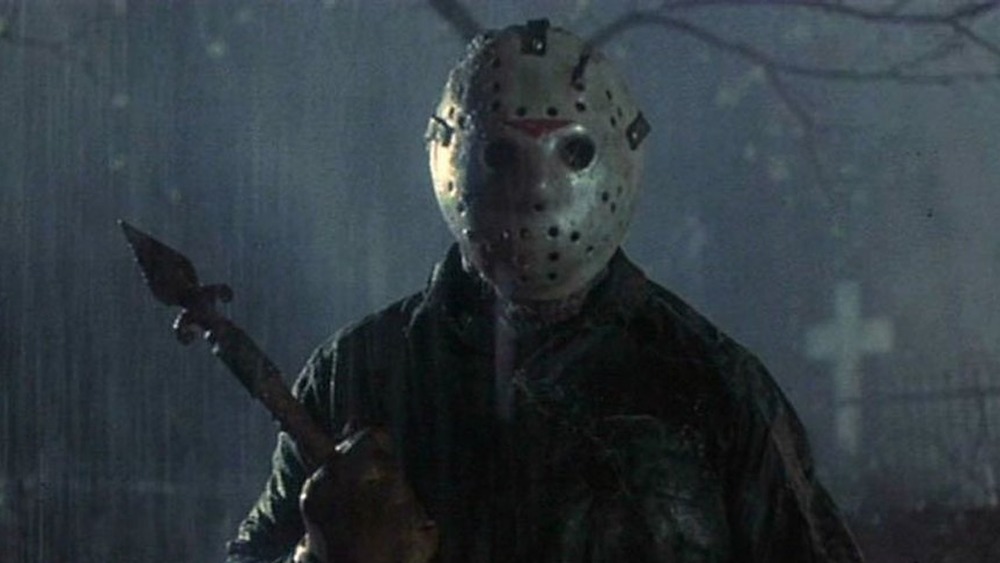The Tweet That Has Horror Fans Worried About Friday The 13th's Future
A long-brewing legal saga around Friday the 13th has taken a new turn, leaving fans with even more questions about the classic horror franchise's future.
For several years, F13 producer and director Sean Cunningham and writer Victor Miller have been in a tense legal battle over rights to the original 1980 film's script. Cunningham has sued Miller, disputing a trial judge's 2018 ruling that the U.S. rights to the original film's script go to the writer, instead of reverting to Cunningham. The case is currently still in the Second Circuit Court of Appeals due to the passing of a judge but will ultimately decide whether the Friday the 13th scribe will continue to hold on to those rights under the Copyright Act's termination right, according to Bloody Disgusting. It will also decide when and how quickly the franchise — which hasn't produced a new franchise installment featuring the character in over a decade — will return to kill it on the big screen.
But according to The Hollywood Reporter, there is a new case further complicating the future of one of horror's most prolific bad guys. The trade reports that Cunningham is now taking on the films' studios, WarnerBros., New Line, and Paramount, over compensation claims. The director's new lawsuit asserts that the studios behind the franchise — which the filing claims have earned more than $129 million — "systematically misaccounted" net profits.
Cunningham's complaint alleges that audits uncovered "improper deductions of fees and bonuses, undervalued licenses, an underreporting of merchandizing revenue and pay-TV income," and more, per THR. The complaint also features a claim that New Line, Paramount, and Warner redacted certain license agreements that have made it more difficult for the producer to understand how money flows around the franchise.
As if that wasn't enough, Cunningham's lawsuit goes on to state that the studios' "withheld documents would reveal that the Pictures' distribution was structured to inequitably advance the interest of Defendants and favored third parties."
The result of the new case may advantage either Cunningham or the studios if negotiations around future installments.
So what does this additional case mean for the Jason franchise and the generations of fans who love the masked killer? According to entertainment lawyer — and Friday the 13th Part 3 actor — Larry Zerner, took to Twitter to share his thoughts on the case and pointed to some interesting tidbits that hadn't been previously reported. Zerner, who has been following both cases closely, tweeted that plaintiff Sean S. Cunningham Films, Ltd. and Horror Inc.'s latest case "ONLY concerns profits of the 2009 F13 Reboot," which the producer alleges he was cheated out of profits and due to "Hollywood accounting." The new suit focuses not only on a different film than Cunningham's case with Miller but also on features no other franchise entries.
After going on to describe the suit as "fairly common" in Hollywood, and likely to result in the "defendants paying Sean [Cunningham] some money in the future," Zerner laid out how this might impact the franchise's next steps — and when or even if fans will see Jason Voorhees on their screens' again anytime soon. The lawyer states that it's difficult to determine whether this new suit will prevent other F13 productions from beginning. Still, it doesn't have to prevent Cunningham and WB from working together again.
"If things are worked out with Victor Miller (and that's a big IF), there is nothing stopping Sean and WB from going forward on a new movie," he tweeted.
In fact, whoever comes out the winner of this most recent lawsuit may end up with more leverage in future negotiations over new franchise installments that fans will hopefully get to see — unlike some of these other F13 storylines. But that leverage and, ultimately, a new movie will only be possible once the Miller case is resolved.

